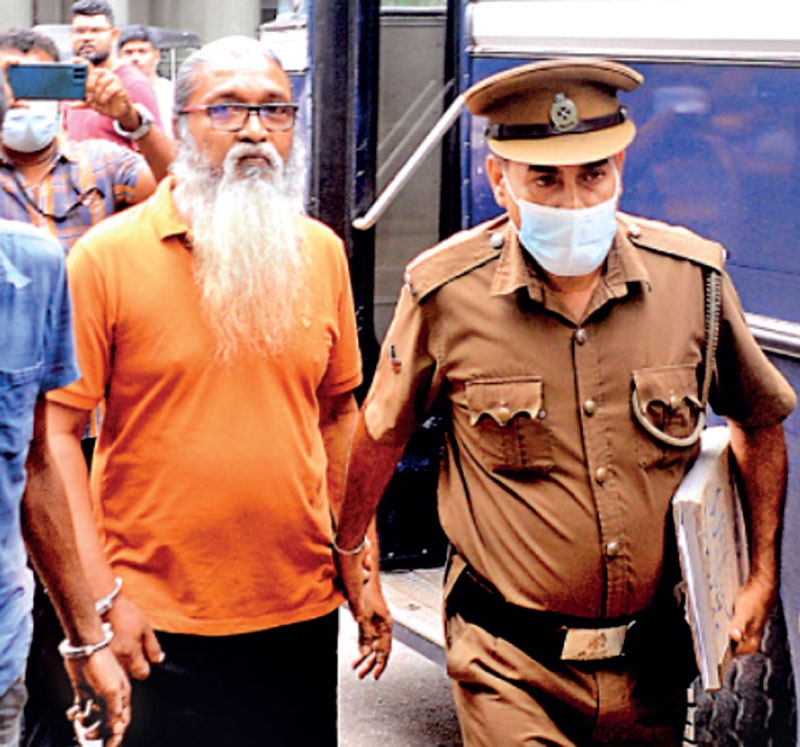The Sepal Amarasinghe case, Sinhala Buddhist nationalisms, and party politics in Sri Lanka

In the first parliament sitting for 2023, the discussion on the parliament floor touched on the issue of hate speech versus freedom of speech. The televised proceedings on 5 January concerned a controversial video shared on social media, where a popular YouTuber, Sepal Amarasinghe, made disrespectful remarks about the sacred Tooth Relic of the Lord Buddha. Amarasinghe identifies as an atheist, and among other things, alleges misconduct in organised religion, especially Buddhism, followed by the country’s majority.
Amarasinghe was arrested the following day and charged under Section 3(1) of the ICCPR Act of 2007 and Article 291 (B) of the Penal Code. On 7 January, President Wickremesinghe shared that measures were underway to introduce a law similar to Singapore’s Social Media Regulation Act. The misuse of the ICCPR Act of 2007 in Sri Lanka has long been criticised by human rights defenders, as it has enabled arbitrary arrest in the past, especially of ethno-religious minorities. The recent arrest of Amarasinghe and steps taken towards State regulation of social media must therefore be examined closely, as it can inform us about the present nature and future trajectory of Sri Lankan politics.
The parliamentary debate cannot be examined in isolation from the deep democratic deficit that the current leadership and Government is trying to improve in the backdrop of a debilitating national crisis.
How politicians approach the question of Sepal Amarasinghe’s speech and the variety of nationalism each political party invokes in their response is important. The issue can serve as a litmus test for political parties to determine which type of nationalist messaging resonates with voters in post-Aragalaya Sri Lanka. Similarly, it provides an opportunity for voters to observe the types of nationalism each political party is willing to embrace.
Thus far in Sri Lankan politics, Sinhala Buddhist nationalism has been a key campaign issue for at least one mainstream political party. Even in election cycles where the key campaign slogan focused on the economy or corruption, mainstream parties rarely distanced themselves from nationalism with any conviction. Nationalism has become so deeply embedded in Sri Lankan politics, that unless a party expresses a clear stance against it, by default, voters have come to assume that the party endorses at least some degree of nationalism. This condition reveals the pervasiveness of nationalism, not only in formal politics but within Sri Lankan society at large.
Nationalism and nationalist attitudes are, however, not monolithic. Ethnonationalist attitudes are characterised by the creation of ‘in-groups’ and ‘out-groups’ based on ethnic, religious, and linguistic identities. Ethnonationalist rhetoric is the expression of nationalist attitudes in terms of one’s own in-group identity. On the other hand, civic nationalist attitudes are inclusive of all citizens of a state and place greater emphasis on their shared state identity. The prevalent type of nationalism in Sri Lanka is ethnonationalism.
However, ethnonationalist attitudes differ not just in degree, but in composition too. Variation in the composition of ethno-nationalist attitudes refers to the in-group identity traits that a person identifies as important, regardless of how strongly they feel about it. Variation in degree is the measure of the strength of that attitude. This makes it possible for an individual to simultaneously hold some ethnonationalist and some civic nationalist attitudes, although one type of attitude might be more dominant.
Among the types of Sinhala Buddhist nationalism, for example, is one of ethno-religious supremacy that defines itself in negation of minority rights. A variation to this, commonly invoking pre-colonial Sinhala kingdoms, advocates a Sinhala Buddhist ‘civilisational state’ where Sinhala Buddhism has the foremost place but while recognising minority rights. There are several other nuanced permutations.
